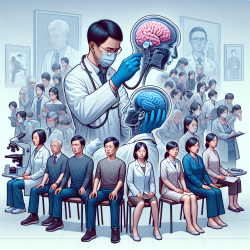In the realm of medical innovation, the path to greatness is often paved with unconventional experiences. A recent study, "Does conventional early life academic excellence predict later life scientific discovery? An assessment of the lives of great medical innovators," reveals fascinating insights into the lives of renowned medical pioneers. This blog aims to distill the key findings from the research and provide actionable strategies for practitioners to enhance their skills and foster innovation.
Breaking the Mold: Key Findings
The study analyzed the early academic lives of 100 great medical innovators to determine if current medical school entry standards would have admitted these pioneers. Surprisingly, the findings suggest that:
- 31% of the great medical innovators did not possess a medical degree.
- 24% would likely be denied entry to medical school by today's standards.
- Only 24% would be guaranteed entry based on current criteria.
These results indicate that many of the great medical innovators did not follow the traditional path of academic excellence, raising questions about the rigidity of current educational standards.
Implications for Practitioners
The study's findings have significant implications for practitioners, especially those involved in education and training. Here are some strategies to consider:
1. Embrace Diverse Backgrounds
Encourage diversity in educational and professional backgrounds. Innovators often come from varied disciplines, and their unique perspectives can lead to groundbreaking discoveries. Consider incorporating interdisciplinary approaches in training programs.
2. Foster Creativity and Curiosity
Create an environment that nurtures creativity and curiosity. Allow room for exploration and experimentation. Encourage practitioners to pursue their interests and passions, even if they fall outside the traditional curriculum.
3. Value Persistence and Resilience
Recognize the importance of persistence and resilience. Many great innovators faced failures and setbacks but persevered. Support practitioners in developing a growth mindset and resilience to overcome challenges.
4. Promote Flexibility in Education
Advocate for more flexible educational standards that allow for varied pathways to success. This could include alternative admission criteria, diverse assessment methods, and opportunities for experiential learning.
Encouraging Further Research
The study highlights the need for ongoing research into the factors that contribute to innovation. Practitioners are encouraged to explore further and contribute to the body of knowledge on fostering innovation in education and professional development.
Conclusion
The journey of great medical innovators teaches us that rigid academic standards may not always predict future success. By embracing diversity, fostering creativity, valuing persistence, and promoting flexibility, we can create an environment that nurtures the next generation of innovators.To read the original research paper, please follow this link:
Does conventional early life academic excellence predict later life scientific discovery? An assessment of the lives of great medical innovators.










